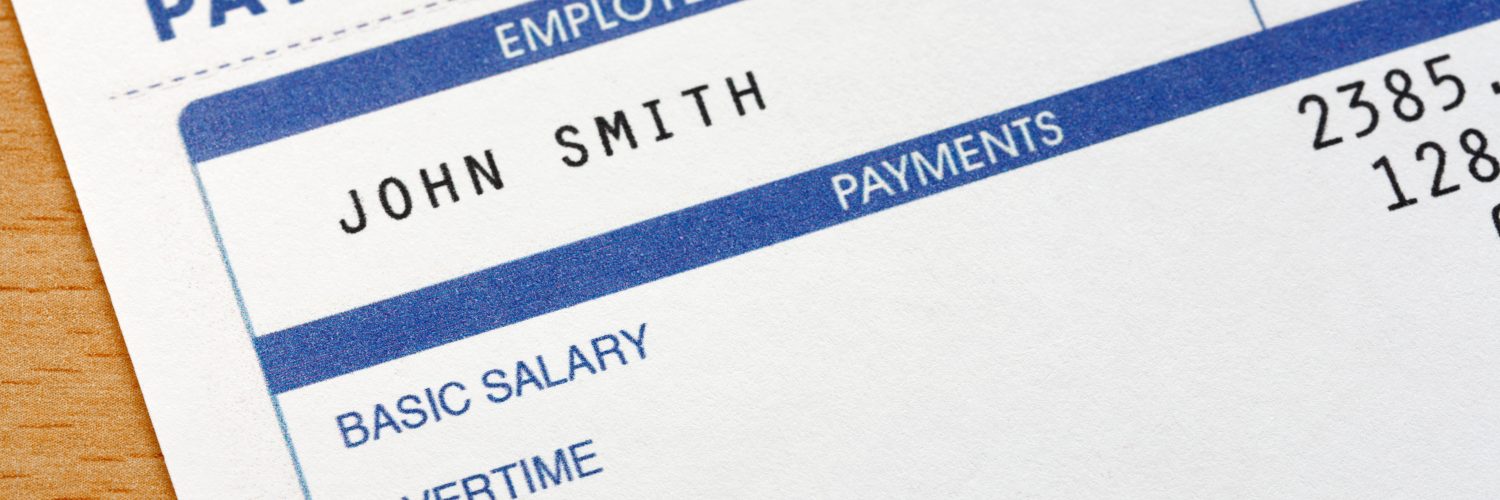Pinchas 5780
The Gemara (Bechoros 29a) famously rules that one may not take compensation for performing Mitzvos. This is derived from the Pasuk, “See, I have taught you statutes and laws just as Hashem commanded me” (Devarim 4:5), on which Chaza”l comment, “Just as I act for no recompense, so shall you act for no recompense”. In other words, just as Hashem taught the Jewish people the statutes and laws of the Torah gratis, so are we expected to emulate Him and teach Torah and perform Mitzvos[1] gratis.
Nevertheless, a person may claim “Schar Batala” (a fee for the time spent performing the Mitzva during which he could have earned money in another capacity). He may also claim “Schar Tircha” (a fee for the trouble or effort entailed in the Mitzva’s performance) and for “Schar Halicha” (travel expenses). The Gemara (Nedarim 37a) also rules that although a Rebbe may not charge a fee for the time he spends teaching Torah[2], he may charge for the service of supervising the children during the hours spent in his care.
In light of the above, the practice of doctors receiving remuneration for medical care would appear to be questionable. Doctors fulfill multiple Mitzvos when treating patients, including “Va’Hasheivoso – Hashavas Gufo” and “Lo Sa’amod Al Dam Rei’echa” (Sanhedrin 73a). How, then, may they charge anything other than Schar Batala and Tircha for their services? In fact, the Tur and Shulchan Aruch (Y.D. 336) appear to explicitly forbid it:
The Torah granted permission to a doctor to heal, and it is a Mitzva, and included in [the obligation to attend to matters of] Pikuach Nefesh. If he withholds [treatment] he is spilling blood… A doctor may not take payment for his wisdom or the insight he provides, but it is permitted to charge Schar Tircha and Batala.
If a person has [certain] ingredients, and another person is sick and needs them, he may not raise their price inordinately. Not only that but even if he set a high price for them due to the [patient’s] need at that time and [the fact that] ingredients can only be found in his possession, he may only receive their actual value.
However, the Shulchan Aruch concludes:
However, if a doctor sets a high price as his fee, the patient is obligated to pay him, for the doctor has sold him the benefit of his wisdom, for which a price cannot truly be set.
The Rema (ad. loc.) comments upon this latter ruling:
Although he [the doctor] has a Mitzva to treat the patient, [he may nevertheless pay a premium for the doctor’s services] because if a Mitzva is incumbent upon everybody in the world and the person who happens to be performing it will not do so without recompense, we do not confiscate the fee, and do not absolve the patient of the obligation to pay.
The basis for the majority of the Shulchan Aruch’s conclusions is the Ramban in Toras haAdam who outlines four categories of remuneration:
- Pay for ‘Teaching’: A doctor ‘teaches’ by issuing instructions to his patients (such as regarding which medications to take). For this aspect of his work he may certainly not be remunerated as it is the core element of the Mitzvah of Refua.
- Pay for Loss of Time and Potential Earnings (Schar Batala): A doctor could have been engaging in another profitable activity if was not involved in treating patients. For this he may be compensated as this is not considered a payment for the treatment itself.
- Pay for the Trouble or Inconvenience (Schar Tircha): A doctor who incurs personal expense or effort in order to treat his patients (e.g. traveling to see a patient located far away even though he could have seen patients closer to his home), may be compensated for the inconvenience and efforts. This would not be considered as remuneration for performing a Mitzvah as he could have performed this Mitzvah without those efforts (as in our example above, when treating the patients who are closer).
- Payment for Medications: A doctor may certainly be reimbursed for the medications that he provides, but may not profit from them.
The distinction between charging a fee for Mitzva performance, which is forbidden and Schar Tircha, which is permitted, is based upon a Gemara about the “Mei Chatas” (Kiddushin 58b) – the water used in sprinkling the ashes of the Para Aduma. The Gemara rules that while one may not charge a fee for sprinkling of the Mei Chatas, one may do so for transporting or drawing the water, and the Rishonim differ as to the reason for this distinction:
The Ri haZaken (in his second explanation) maintains that the Gemara means to distinguish between acts that are performed at an earlier stage in the process (for which one may receive remuneration), and those that directly prepare for or perform the Mitzva itself (for which one may not).
Rashi (ibid.) and the Ramban disagree. They hold that the Gemara means to distinguish between those acts that are a Tircha such as transporting or drawing the water (and for which one may receive remuneration) and those that are not (such as the sprinkling). If an act has no element of Tircha then the fee is by definition for the performance of the Mitzva which is forbidden.
However, this distinction is only true when the Mitzva in question is not incumbent upon a particular individual more than any other – it is a “Mitzvas haKlal” (such as Mei Chatas). Therefore, the individual involved may charge for his Tircha as he was not specifically obligated to undertake it. However, if the Mitzva is incumbent upon him in particular he may not even charge for his Tircha, for the Tircha itself is part of his personal obligation.
This approach forms the basis for the Ramban’s rulings regarding remuneration for doctors. In a general sense, the Mitzva of Refua is a Mitzvas haKlal. A doctor is not personally obligated to treat every patient, for there are other doctors available, and he may also choose to treat other patients. Therefore, he may charge Schar Tircha. However, he may not charge for his recommendations and instructions to the patient as no Tircha is involved, and his remuneration would be for the Mitzva of Refua itself which is forbidden.
It would seem to follow that if a doctor has no other patients to see and no other doctors are available to see a particular patient, then he would not even be able to charge Schar Tircha as the Mitzva has now become his own personal obligation. Likewise, in cases of Pikuach Nefesh, where the patient needs immediate treatment and typically has no ability to turn to other physicians, the Mitzva would also be specifically incumbent upon this doctor. However, these distinctions are not mentioned by the Poskim.
Perhaps this is what led the Taz (ad. loc.) to explain that the reason that Refua is a Mitzvas haKlal is because, “Every person could study medicine… and he was never obligated to study it in the first instance”. In other words, according to the Taz, we do not examine each instance of Refua to determine whether it is a Mitzvas haKlal or not, for it is inherently a Mitzvas haKlal by virtue of the fact that any person could have chosen to study medicine (if he so desired) and this particular doctor could have chosen not to do so as well[3].
However, the Radvaz (Shu”t 3:556) explains that the Ramban considers Refua to be a Mitzvas haKlal because a doctor can always assume that there is another doctor who is equally proficient[4]. Therefore, if no other doctor is as proficient in his field as he is, it would not be a Mitzvas haKlal and he would not be able to charge his full fee even if the patient had agreed to it. (But if there are doctors who are equally proficient he may charge a large fee, for a price cannot be put on Refua as stated above).
Today there are various models of physician compensation. Where public health care is provided by the state (such as in the U.K. or Israel), medical personnel are remunerated by the government. Their salary includes Schar Batala and Schar Tircha and generally does not depend upon the number of patients they treat. It merely facilitates their activities, but does not remunerate them for each treatment they provide, and is therefore clearly permissible.
However, compensation for private or commercially-funded healthcare would appear to be more problematic, especially in a fee-for-service type of model. The payment made by a patient for an appointment or procedure is usually greater than could be justified as Schar Batala or Schar Tircha – how then is it permissible?
HaGaon Rav Asher Weiss Shlit”a offers three arguments to justify the practice:
- The study of medicine requires a great deal of investment. It is logical to say that a doctor may claim compensation for the costs and efforts that that he expended during his training.
- We may invoke the rule of “Eis La’asos laShem, Heferu Sorosecha”, meaning that there are times when the Torah’s laws need to be set aside to avoid catastrophe. The Poskim permitted Rabbanim and disseminators of Torah to take a salary for their work due to the concern that the Torah would otherwise be forgotten. The same argument could be made in this case – if doctors would not be able to earn a decent wage nobody would study medicine.
- Above all, the custom for generations (since the time of the Gemara – see Bava Kama 85a & Sanhedrin 91a) has been to charge a fee for Refua. The Rosh (Tosfos haRosh, Brachos 60a) also clearly permits it. In monetary issues, when there is doubt about whom the Halacha follows, one may rely upon the prevailing custom.
In conclusion, even when a doctor is permitted to take a salary he should remember that the basis of the Torah’s prohibition on receiving remuneration for performing Mitzvos is the concept that a person should attempt to cleave to the ways of Hashem. This is a lofty accomplishment and frames the practice of medicine as an opportunity to fulfill the precept of “v’Holachto b’Drachav” that should not be squandered.
[1] All of the Rishonim and Acharonim agree that this rule applies not only to teaching Torah but also to the performance of Mitzvos (see the Ramban in Toras haAdam, Inyan haSakana).
[2] Though he may charge for the time spent teaching secular subjects.
[3] This argument is also invoked by the Rema (as cited above). However, the Rema uses it to justify the Halacha that we need not confiscate the fee of a doctor who wrongly charged a patient for the Refua itself whereas the Taz held that this argument is the basis for the Ramban’s leniency to charge Schar Tircha. Other Poskim hold that it is the basis for the leniency to charge Schar Batala, which is the simpler understanding of the Ramban as we have it.
[4] It is possible that the Taz would also agree that if no other doctor is as proficient as he is then it would not be considered a Mitzvas haKlal.















Add comment